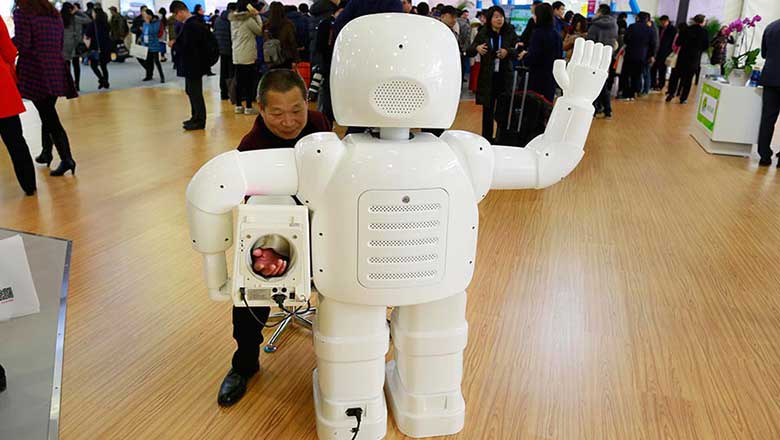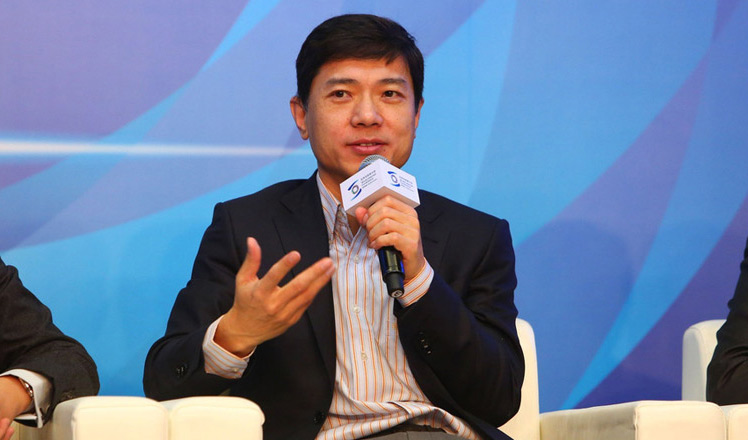Turnover up slightly in workplaces
Updated: 2015-12-21 08:33
By Xu Jingxi in Guangzhou(China Daily)
|
||||||||
Survey finds need for more skilled workers in high-tech industries
As China's economic growth has slowed, many enterprises, especially in the manufacturing sector, have undertaken transformations and upgrades that have increased the turnover rate of employees this year, a recent survey showed.
The average turnover rate in 2015 was 17.7 percent, an increase of 0.3 percentage points over 2014, according to a recent survey released by 51job.com, a major Chinese recruiting website.
The survey contacted 3,241 employers and 4,081 employees in October and November.
The three industries with the highest turnover rates this year were manufacturing (20.9 percent), traditional services (19.8 percent) and consumer goods (19.6 percent).
The average pay raise was 7.6 percent in 2015, decreasing by 0.5 percentage points from 2014. Raises were expected to decline to 7.3 percent in 2016, the report accompanying the survey said.
The report said involuntary turnover - layoffs on nonrenewal of contracts - is increasing in the manufacturing sector because of the downturn in the real economy and excess capacity in some enterprises.
In addition, manufacturers are cutting labor-intensive jobs when automating their production lines and recruiting more high-tech professionals to help raise the added value of products.
For example, Jinlan Group, a maker of aluminum products based in Foshan, Guangdong province, saw turnover between 5 and 10 percent of its more than 1,000 workers, according to Executive Director Zhou Baojuan.

"We need fewer workers in packaging, moving cargo and store management after introducing machines and intelligent monitoring systems to do most of the work," Zhou said.
"We transferred capable people to new posts and didn't renew contracts with the rest. We are still in great need of professionals in handling the new machines and systems and for developing new-type aluminum products."
Turnover rates in the high-tech and finance industries also hit highs this years - 19.1 and 18.1 percent - which, actually underscores a boom in those two sectors, the report said.
Traditional enterprises are embracing the Internet against a background of increased big data and China's Internet Plus initiative. They join the already fierce competition for talent in the fast-changing high-tech industry.
Meanwhile, the rise of Internet finance has generated a big talent gap in the finance sector.
The bright prospect of the IT and finance industries have also attracted talent from State-owned enterprises, where the turnover rate in 2015 was 4.2 percentage points higher than 2014, according to the survey.
As the central government is pushing the reform of State-owned enterprises, working at such enterprises is no longer an "iron rice bowl" that can guarantee a decent income whether people work hard or not.
The report also highlighted the flow of talent from first-tier cities to smaller ones with attractive policies and convenient transportation.
Trends in the job market
The workplace newbies who were born in the 1990s change their jobs often. The more young employees under 25 an enterprise has in its staff, the higher the turnover rate. Having grown up with the Internet, the post-1990 generation has a nose for new job opportunities and dares to try different kinds of jobs and even start their own businesses. Meanwhile, these young people usually don't have a clear career plan.
Besides the high-tech and finance sectors, biomedicine and the modern services industries will maintain robust growth in 2016 and provide employees with high pay raises. Professional technicians are expected to have the highest pay raises in 2016, which could reach 9 percent. As the central government is promoting innovation, professional technicians are much sought after in the job market. Operators are expected to have a pay raise of 7.4 percent in 2016 due to a labor shortage of migrant workers.
Employees with a master's degree and one year of working experience saw a big decrease in raises in 2015 compared with 2014. Their pay raise in 2015 was 10.6 percent, 6.2 percentage points less than the year before. Academic qualifications have less influence on salaries with the economic growth slowing down and a large number of graduates and professionals returning from overseas.
Source: 51job.com
- 10 execs suspected of faking pollution data
- Top 10 social media events of 2015
- Life sentences for east China child traffickers
- Shenzhen leaps to top of efficiency list in 2 yrs
- Pandas prefer choosing their own sex partners, researchers find
- Tycoons exchange views on building a cyberspace community of shared future
- Iraq holds its first beauty contest in 40 years
- Libyan factions sign UN deal to form unity government
- World's refugees and displaced exceed record 60 million
- No specific, credible terror threats against US: Obama
- UN Security Council adopts resolution to cut off Islamic State funding
- California shooters' ex-neighbor charged with supporting terrorists

 Iraq holds its first beauty contest in 40 years
Iraq holds its first beauty contest in 40 years
 Highlights at the Light of the Internet Expo
Highlights at the Light of the Internet Expo
 Finger Icons: Guess who's who
Finger Icons: Guess who's who
 Older mother who lost only child delivers another baby
Older mother who lost only child delivers another baby
 Top 10 most attractive FDI destinations in the world
Top 10 most attractive FDI destinations in the world
 Canadian college offers flying classes to legless girl
Canadian college offers flying classes to legless girl
 Fashion buyer scours the world for trendy items
Fashion buyer scours the world for trendy items
 Tycoons exchange views on building a cyberspace community of shared future
Tycoons exchange views on building a cyberspace community of shared future
Most Viewed
Editor's Picks

|

|

|

|

|

|
Today's Top News
Shooting rampage at US social services agency leaves 14 dead
Chinese bargain hunters are changing the retail game
Chinese president arrives in Turkey for G20 summit
Islamic State claims responsibility for Paris attacks
Obama, Netanyahu at White House seek to mend US-Israel ties
China, not Canada, is top US trade partner
Tu first Chinese to win Nobel Prize in Medicine
Huntsman says Sino-US relationship needs common goals
US Weekly

|

|







